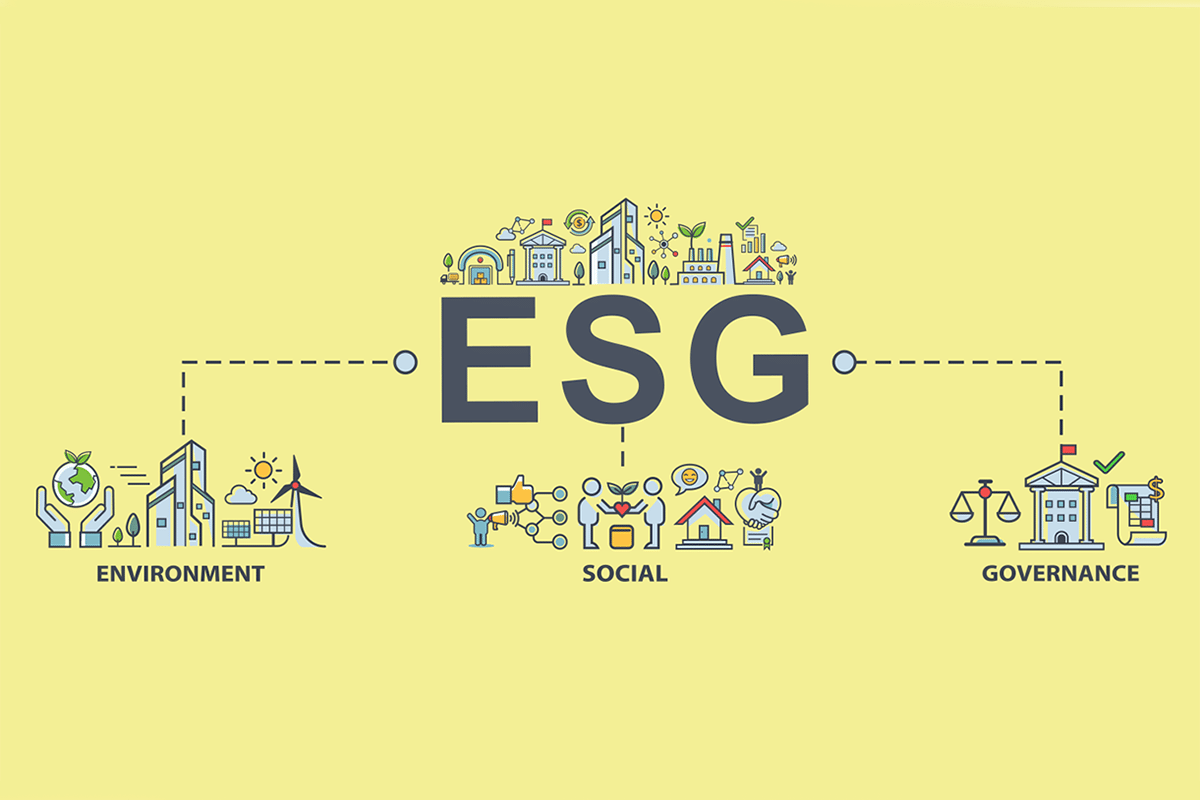Beyond the Hype: Why ESG Frameworks Miss the Mark for Small Nonprofits
When we take a closer look at what Environmental, Social, and Governance (ESG) frameworks actually entail, it is often not worth the time and resources for most small nonprofits to go through such a process.

Why give nonprofits something like ESG to implement when they are already living its principles?
Recently, there has been some discussion that the corporate framework of Environmental, Social, and Governance (ESG) should be adopted formally by various nonprofit organizations.[1] At first glance, this might make sense: after all, this framework is intended to “measure sustainability […] not only related to the environment but also the ethics of the business.”[2] Sounds great in theory—right? I mean, what nonprofit wouldn’t want to be more environmentally sustainable and ethical?! But when we take a closer look at the bureaucracy of what this framework actually entails, we realize what an absolute waste of time and resources it would be for most nonprofits to go through such a process.
So, what is ESG?
ESG was originally developed as a tool to help investors decide how well a corporation was dealing with risks in a changing world so they could decide how good an investment that corporation might be.[3]
It now seems to be referenced more broadly and is used as shorthand for how well a corporation protects the environment as well as carries out progressive practices (such as not discriminating by race, color, ethnicity, gender, or whatever other categories seem appropriate). It’s the hottest trend in investing and, according to “The Atlantic,” a sham. But anti-wokeness aside, it’s also about as likely to be successful as all of its predecessors in holding corporations accountable for the world they’ve wrought.
A Quick Aside about Corporate History—and Why Using Corporate Frameworks Doesn’t Work for Nonprofits
As many of us are probably all too painfully aware, America is primarily run to benefit the owners of large corporations. After the Civil War, corporations began to move away from government regulation;[4] they have since been used to dodge the law, including not paying taxes and creating monopolies (Facebook and Microsoft, for example) while legislators seem to give them increasingly free reign to rob, plunder, and pollute.[5]
Considering the long history of American corporate irresponsibility, many people—including occasionally Congress and often nonprofits themselves—have made strong efforts to rein in the beast: they have done everything from passing laws and regulations (which corporate lawyers almost immediately try to upend) to appealing to the (supposed) humanity of CEOs via voluntary measurements and organizations—all in an attempt to keep corporate misbehavior to a minimum. While these intentions are good, the results have not been all that promising.[6] Time and again voluntary commitments are missed or only honored in name, not deed.[7]
There are now more different indices to rate corporations than you could imagine (alongside a burgeoning corporate responsibility consulting industry), none of which have ever really brought corporations set on shareholder profits into the fold. ESG is one of many tools now being offered to help the corporate economy move back from the brink of planetary disaster that it created, and I’d argue it is as likely to be successful as all of its predecessors. In other words, it is mostly a tool for greenwashing with no real enforceability.
What is greenwashing—and how does this relate to ESG?
Greenwashing is exactly what it sounds like: it’s the pretense of being environmentally friendly while actually doing things that often directly harm the environment. Of course, being environmentally responsible is only one aspect of ESG, but it should still be a fairly good indication of corporate (ir)responsibility.
Take a look at this list of the top 100 ESG stocks from October 2022. ConocoPhillips is ranked no. 7, despite a gas leak that began in March that same year. How anyone could believe ESG represents a valid index of corporate accountability—especially one based in environmental responsibility—is beyond me.
And yet, ESG is currently under attack by ultra-conservative political pundits for being too “woke.” This in combination with its apparent lack of teeth has led many to question whether the initiative is worth saving at all.
Some Caveats
This is not to say that ESG as a framework for corporate accountability is completely without merit. The one way ESG appears to really work is if a corporation’s leadership start to understand their prosperity as being reflected in the prosperity of the community itself. That is, ESG might help corporate leadership recognize the community as stakeholders who invest in their company—and who their company should invest in in return.
On the other hand, we should also recognize that just because an organization is a nonprofit does not mean it is responsibly run. We’ve all seen some nonprofits fall off the good path of being mission-driven.[8] And we know many good nonprofits struggle while others have (even an excess of) resources but are run by narcissists.
In fact, many of the very largest NGOs are essentially for-profit corporations with a slightly different missions but almost identical management to for-profit corporations. Perhaps unsurprisingly, the boards of these NGOs also usually have extensive ties to the corporate order.
And to be clear, these over-resourced nonprofits would actually be served by an ESG plan. A formal assessment of how they treat communities and increased transparency of their governing processes might help keep them more in check and make them responsive to their communities. That is, it would show nonprofit behemoths how far off-track they have come and how the resources available might be better implemented by other organizations—perhaps those actually using best practices who have the most concern for their communities. It is also important to note that these larger nonprofits—the ones who would benefit from a hard look in the ESG mirror—are also usually the ones with the resources to actually plan and implement the best parts of ESG.
But again, we have to worry about greenwashing. So, before we go head-over-heels into advocating ESG for the big nonprofits, we must ask ourselves: Does this framework reward good behavior? Or is it just spin, covering up socially irresponsible practices? Because to truly change our society, it seems a lot like we’ll need both the carrot and the stick approach, not just for corporations but also for the nonprofits that act like corporations.
So, here’s the real question: Why worry about ESG when we’re living it?
For the rest of the nonprofit world—for those of us who aren’t rolling in corporate sponsorships or sitting on the laurels of our accrued interest—I have my doubts as to the usefulness of the time and cost to plan and implement this framework.
Let’s face it: as I previously mentioned, many good nonprofits struggle to make ends meet, especially those without the financial backing of business leaders on their boards. And these struggling nonprofits are not going to be able to pull off an ESG plan without extra resources, nor implement it without being something they are not. In other words, some funder would have to commit to long-term funding in order to get through the planning process as well as the implementation of the plan’s suggestions. And wouldn’t it make more sense to save this funding for programming—you know, the thing that most directly benefits the community?
I’m not speaking out of my hat: throughout my career, I have worked at or served on the boards of a variety of very small nonprofits. Most have just enough capacity to do what they do, and almost no resources or time to contemplate their navels (or doing much planning, really). When these small groups do muster the commitment and resources to complete a plan, most of it stays on the shelf while they continue to work directly on their mission. I cannot honestly say I have ever seen a small, under-resourced nonprofit really implement a strategic plan.
So why would we give them something additional (like ESG) to implement when they are already living its principles?
For most nonprofits—the ones that are run by people who care, the ones with never-enough resources to reshape the world—I say let’s leave ESG to the scofflaw corporations and the NGO behemoths. Instead, why don’t we just focus on being better neighbors: maybe this means more holistic or proactive approaches to community engagement, for example, really spending our money where it matters.
Because at the end of the day, we small nonprofits prove it time and again: we don’t need ESG analyses to help our communities. We’re already doing it by being a part of the communities we serve.
Sources
[1] See, for example, this article on how nonprofits can benefit from implementing ESG.
[2] ESG is Everywhere. Should It Matter to Nonprofits?
[3] For more, see What is Environmental, Social, and Governance Investing?
[4] For example, “[I]n the late 1800s, corporations began to shift away from the strict limitations of their legislature-approved charters.”
[5] After all if fines levied against oil companies barely touch corporate profits, do they even matter?
[6] Want to see which corporations are the biggest regulatory violators? Check this out!
[7] Remember, for example, back to 2014 when profits and the stock market were up, but most people weren’t sharing in economic recovery?
[8] Want to know how to realign your culture in accordance with your mission and values? Check out this article!
About the Author
Greg Gerritt has been an activist for more than 50 years—ever since organizing his high school for the first Earth Day. Today, he labels himself activist, writer, and forest gnome; he maintains a very active, green public policy portfolio with a focus on creating community prosperity by simultaneously healing ecosystems and channeling economic development resources to under-resourced communities. In 1986, he was the first Green Party candidate for state legislature in the United States. Gerritt has started a local watershed group, administered the coalition of environmental nonprofits in Rhode Island, brought several green industries to the state, and served on a number of nonprofit boards. One of his current projects is a YouTube channel, Moshassuckcritters, for which he has created nearly 2,000 short videos of urban wildlife in Providence, Rhode Island. Read more on his blog!
Articles on Blue Avocado do not provide legal representation or legal advice and should not be used as a substitute for advice or legal counsel. Blue Avocado provides space for the nonprofit sector to express new ideas. Views represented in Blue Avocado do not necessarily express the opinion of the publication or its publisher.












Wow! Thank you so much for taking the time to write for Blue Avocado. So plainly and clearly written, and speaking truth to power.
I think most small nonprofits should spend any extra time they have on trying to Increase Their Reserves instead of setting up an ESG policy for the paucity of investments they have, or even if they have some. (and i know, esg is “sexy” and it may be a topic that a board member (from a big ol’ company) can get engaged with, but still…)
I, myself, think boycotts (direct action) are more effective than ESG (passive action) unless everyone jumped on board, I guess.
And ESG is so hard to define/measure/etc. I’ve recently thought that for-profit housing should be excluded from ESG investments. If there was a strong middle class in America, I might feel differently, but not any more.
Thank you for your lifetime of work and so glad that you’re not done.
Greg is right, and it is a bit brave to even bring up how the ESG process could be a waste of time and resources for small non-profits because there is a risk some will see it as undermining social justice goals, anti-racism etc and attack him for it (though not those actually know Greg!) I too found ESG philosophy is inherent in the work of those groups I have ever volunteered for or contributed to, though some larger ones (e.g. Sierra) seem to have gone overboard on such issues and may have lost sight of their main mission.